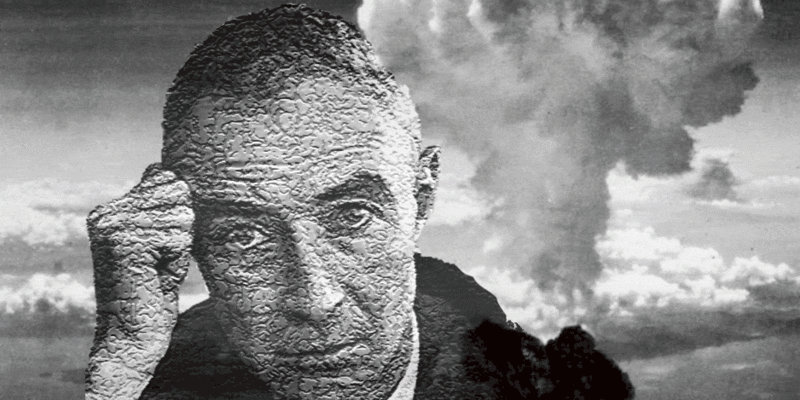Barbie’s world: Why the story and marketing of ‘Barbie’ matters
In anticipation of the release of Barbie, Dustin Kidd, professor of sociology, and Sheri Lambert, professor of marketing, provide their insight into why the movie—and the way it was marketed to the public—is significant.

Greta Gerwig breathes life into the iconic Barbie doll with her upcoming film Barbie, premiering in theaters on July 21. Starring Margot Robbie as Barbie and Ryan Gosling as Ken, the movie has been gaining attention for its strong marketing campaign, which includes partnerships with Airbnb; Crocs; Burger King; and many other food, clothing, accessory, furniture and household product brands. The film also uses Barbie’s long trajectory as a toy and brand to reflect on issues of gender, feminism, body image and the American dream.
To understand more about Barbie’s world, Dustin Kidd, professor of sociology in the College of Liberal Arts, and Sheri Lambert, professor marketing in Fox School of Business, answer questions about who Barbie is and what she represents in American culture.
Key takeaways
- The way that the Barbie doll has changed over the years reflects the way that women’s role in American society has changed.
- Barbie’s marketing strategy is unique in that the movie is being marketed directly to women and has partnered with a large number of other brands.
- Barbie’s presence in the imagination of Americans of all ages makes her primed for projections of ideas about feminism, but also for brand partnerships.
What does the Barbie doll say about American culture?
Over the past few decades, the concept of the American dream has shifted from a story about hard work and achievement to a story about consumerism and having it all. Work is ephemeral, which is why Barbie is easily imagined within a host of different careers. If the owner of a Barbie doll wants to shift their Barbie’s career from doctor to rock ‘n’ roll singer (ignoring the fact that Barbie is supposedly 19), they need only buy another outfit or another doll.
–Dustin Kidd
Barbie has been on a growth curve. She’s grown up, just like the women of 2023. She’s fearless, she’s going out into the real world. That wasn’t the case for Barbie in the ’70s when I was playing with her as a kid—Barbie was unrealistic, in terms of her physical attributes, which are unattainable for any real person, but also emotionally. But now Barbie sends a message that little girls can be whoever they want, whether that’s a doctor, astronaut, whatever. The Barbie brand has done a good job of keeping up with changes in expectations of women over the years, and they’ve put it on steroids for women in 2023, saying that they can be fearless, they can truly do anything.
–Sheri Lambert
What does the marketing of the Barbie movie say about American culture?
It says that we like hype. We like themed things. What the Barbie brand has done is incredible—they’ve built so much excitement and there are so many collaborations with other brands, like washable rugs, Gap, nail polish, couches, everything. Everything is pink.
–Sheri Lambert
What is special about the way that the Barbie movie has been marketed to the public?
It’s special in that big blockbuster movies aren’t usually marketed to women. The film industry (and the auto industry) doesn’t market to women well, but it’s time that they market more to women because women have so much buying power. So Barbie is glomming on to the female target, and the female market is going to buy this brand. And they’re also going to take kids to this movie, and it’s great that it’s fun for men, too. The marketing of Barbie is also special because they’re selling two brands at once: the movie and the toy. And they’ve marketed it so that they’re collaborating and selling both at once.
–Sheri Lambert
Why is there so much interest in the Barbie movie? Is it just good marketing or is there something deeper?
The centrality of marketing in the Barbie universe does not undermine the wide range of important meanings that Barbie has for her audience—both doll owners and filmgoers. Meaning is a complex negotiation between creators and the audience, and no one is better at making meaning than kids playing with toys. Whatever stories that Barbie’s inventor Ruth Handler might have had for the doll, whatever stories Mattel may have added over the years, and whatever stories that Greta Gerwig might introduce in the new film, the Barbie fans will always have the ultimate say over what Barbie means to them.
–Dustin Kidd
The marketing of Barbie is fantastic. It touches on everything we teach in a marketing degree program. They’ve covered every angle. They are reaching consumers at every point in their journey: building awareness, buying the product, following up afterwards.
–Sheri Lambert
Why is the Barbie movie especially well-suited for all of its brand partnerships?
Because it’s fun, and people want to be happy. Barbie and Ken are fun and happy. Pink is a fun, happy color, and brands are jumping on the bandwagon. Emotion sells—happiness sells, sadness sells, sex appeal sells.
–Sheri Lambert
In the world of Barbie, jobs are reduced to outfits while consumerism is tangible. There is no shortage of dolls to purchase (various Barbies and her friends), outfits, cars, furniture, decor, etc. Barbie has always been a massive marketing machine, and the movie just takes that to another level. Barbie the doll lives inside a fantasy house and a fantasy world that Barbie owners can buy and constantly expand. Using brand tie-ins for a movie is nothing new, but no movie has ever been more primed for an onslaught of tie-ins than this one. It’s an imagination loop. The products that you buy for your Barbie doll expand her world into something that mimics the real world. The movie tie-ins expand the audience’s world to mimic the world of Barbie.
–Dustin Kidd
Is Barbie a feminist?
Whether or not Barbie is a feminist depends a lot on the interpretation and interests of the audience members. When it comes to these issues, we put a lot of pressure on single stories, demanding that Barbie or Beyoncé or Taylor or Awkwafina be all things to all people. The best way for our entertainment industry to be more feminist is to open the door to more diverse storytellers and let them tell the stories that matter to them.
–Dustin Kidd
Margot Robbie plays Barbie as a fierce woman who is fearless and going out in the real world. Barbie represents how women can do anything now. For young women, it’s saying they can be anything they want to be with hard work and perseverance. The movie is a feminist masterpiece—Barbie represents female empowerment, women being fearless.
–Sheri Lambert
Is Barbie a good role model?
Significantly, this movie is being released in the midst of strikes by both the writers and the actors that make our entertainment industry run. If we can renegotiate how we tell stories through mass culture, we have the chance to make storytelling more equitable. In turn, those stories may help to effect change and make for a more equitable reality. If Barbie fans are inspired to build a more equitable world, then the answer is yes, but that is up to the fans.
–Dustin Kidd


